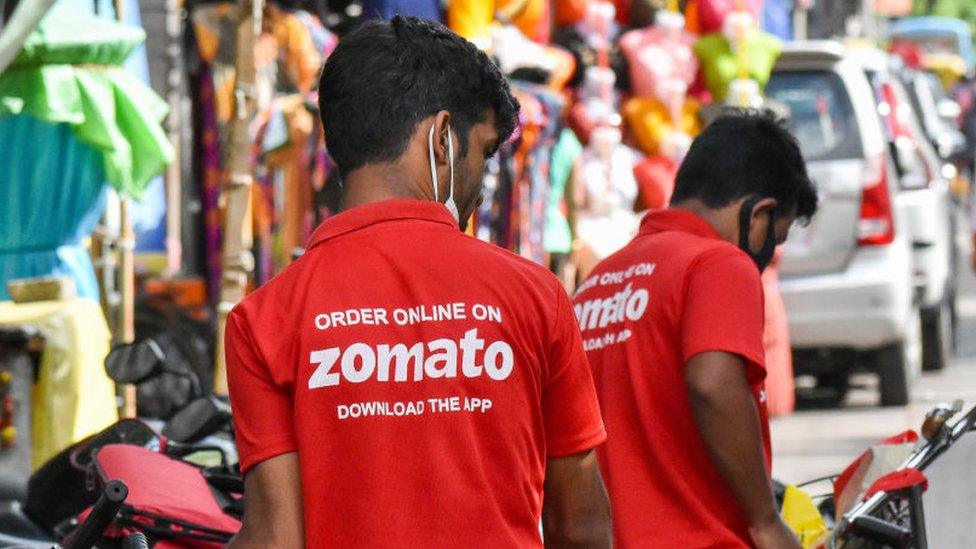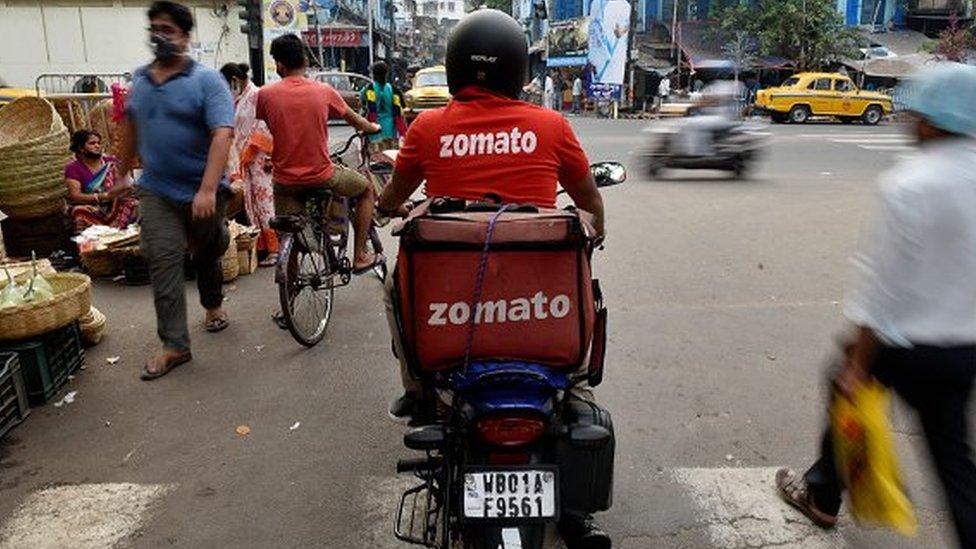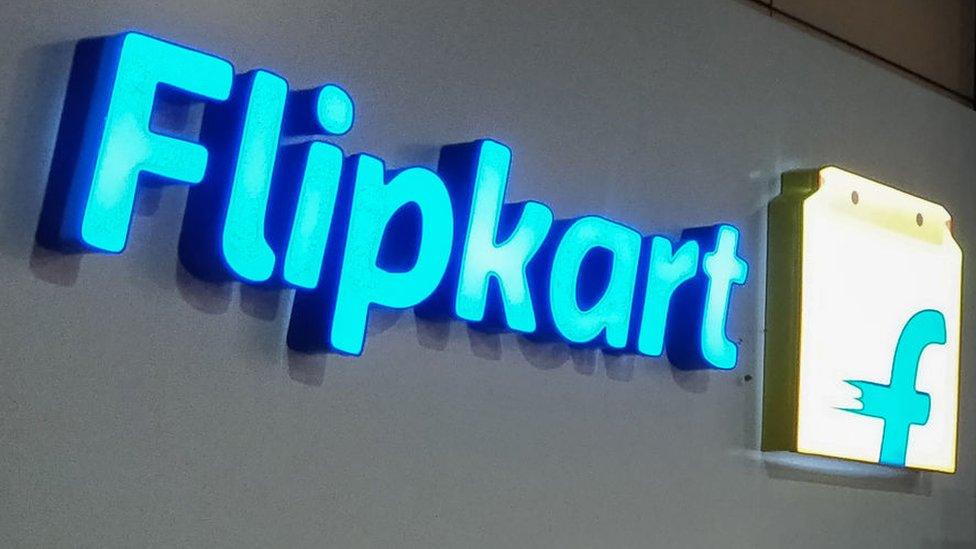Paytm: Shares plunge in India's biggest ever market debut
- Published

Paytm founder Vijay Shekhar Sharma at the firm's stock market debut on Thursday
Shares in Indian digital payments platform Paytm have plunged by more than 27% on their Mumbai stock market debut.
The company raised $2.5bn in the country's biggest ever initial public offering (IPO).
Some investors have voiced concerns about the loss-making Paytm's business model.
The firm counts Chinese payments giant Ant and Japanese technology group SoftBank amongst its biggest backers.
Paytm's first-day slump comes as Asia's third-largest economy has been in a grip of an IPO frenzy as shares sit near record highs. India's benchmark BSE Sensex index has risen by almost 25% since the start of this year.
India's start-ups have attracted billions of dollars in funding this year as investors look for opportunities in the Covid-battered economy.
Even before Paytm's record share listing, Indian companies had raised a record $10.5bn so far this year through IPOs in 2021.
Last week, shares in beauty retailer Nykaa jumped on its debut, while food delivery app Zomato surged on its first day of trade in July.
The soaring valuations of Indian IPOs has prompted authorities to take steps to try to cool the market.
On Tuesday, the country's markets regulator outlined plans to tighten the rules on how companies can spend the cash they raise from IPOs.
That came after a decision by India's central bank to impose limits on how much people can borrow to buy shares of a new listing.
Founded by Vijay Shekhar Sharma, who was once named as India's youngest billionaire, Paytm's platform was launched in 2010.
The company quickly became synonymous with digital transactions in a country that has traditionally been dominated by cash payments.
Paytm was given a major boost by Prime Minister Narendra Modi's government push to curb the use of cash - including the demonetisation of nearly all banknotes in circulation five years ago. It also benefitted as people became less willing to use physical cash during the pandemic.
Almost 22 million shop owners shop owners, taxi and rickshaw drivers and other vendors in India now accept payments using the platform's blue-and-white QR code stickers.
Last year the firm handled transactions worth more than $54bn for its 337 million customers.

'A long road to profitability'
Nikhil Inamdar, India Business Correspondent, BBC News
Paytm's lacklustre debut wasn't entirely unanticipated after institutional investors took three full days to submit enough bids to cover all the shares on offer - although the extent of the slide has surprised many.
There are three major factors that worry analysts about the company's future: A fuzzy and long road to profitability, a very high valuation and stiff competition in the payments market from the likes of Google, WhatsApp and Walmart-backed phonePe.
There are also concerns that Paytm has dipped its toes in too many businesses and lacks focus, inhibiting its capacity to become a market leader in any of these areas.
Global brokerage Macquarie, which initiated coverage on the stock today, has given Paytm an "underperform" rating saying it sees the potential for Paytm to fall by more than 40% from its issue price.
Paytm's weak debut performance is in sharp contrast to the 80% opening bump that India's other big internet unicorn, beauty retailer Nykaa, saw on its listing day.

You may also be interested in:
India coronavirus: The businesses seeing growth in pandemic
Related topics
- Published23 July 2021

- Published14 July 2021

- Published13 July 2021
